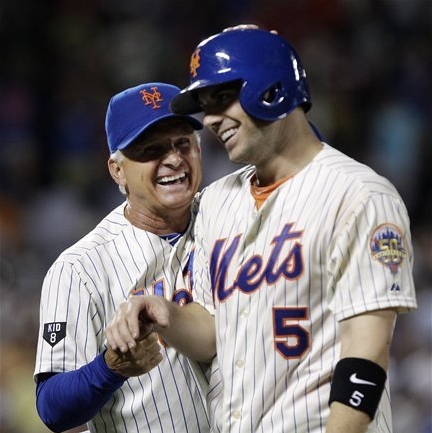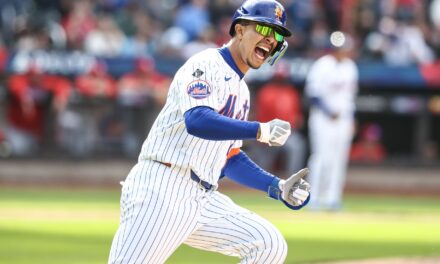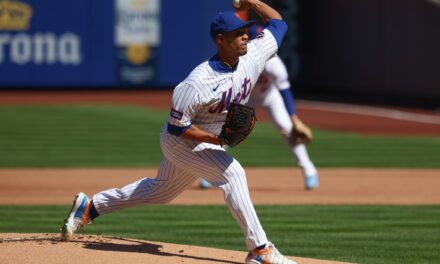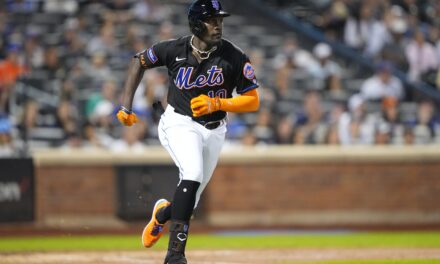One of the bright spots in this Mets roller coaster season has been the resurgence and leadership of All-Star third baseman David Wright.
His .400 average through nearly the first two months of the season, and the MVP talk alongside Andrew McCutchen and Joey Votto in early July, gave fans something to get behind in addition to the Amazin’s surprising first half. However, with the fall of Flushing’s Finest off of cloud nine, so too has gone the season for the Mets’ franchise player.
| AB’s | AVG/OBP/SLG | Runs | Hits | 2B | HRs | RBIs | BB | K | |
| Wright 1st Half | 302 | .351/.441/.561 | 56 | 109 | 27 | 11 | 59 | 60 | 47 |
| Wright 2nd Half | 183 | .246/.336/.399 | 23 | 45 | 10 | 6 | 20 | 31 | 56 |
Through the first half, David Wright was on pace for a 22 HR and 117 RBI season with 210 hits, 111 runs and 119 walks.
He was among the league leaders in average, OBP, OPS walks, hits, doubles and RBIs. More importantly however, Wright was making contact, going down on strikes only 15.5% of the time. Working with Dave Hudgens, the 29-year old was seemingly erasing his inconsistent past three seasons. It appeared as if the David Wright of 2007 and 2008 had finally returned to form.
However, once the banners for the 2012 All-Star Game came down from Kauffman Stadium and baseball’s finest returned to their respective teams, Wright came back much more aggressive at the plate. It brought the two-time Silver Slugger a nice power stroke for about ten days, but after which resulted in a drastic spike in strikeouts. That 15.5% punchout rate, has nearly doubled to 30.6%.
20 home runs, 67 RBIs and 156 punchouts; that is the pace Wright is on in the second half. His average on the season has now dropped to a season low .311, a long stretch from his .405 back in late May. Entering this winter in which the Mets and their franchise player will likely meet to discuss –or at least entertain a discussion regarding– a new deal at some point, this regression that has been the second half for Wright could play a major role in determining his future with the organization. From Alderson and the ownership’s point of view, this player has not had a consistently productive year since 2008. Is it too much a risk to sign him to a 5,6, 7 year contract? Doesn’t this all sound all too familiar?
David Wright carried this Mets offense through their first half, but once he faltered, so too did the ballclub in the standings, losing 13 of their first 15 games after the All-Star break, a stretch in which Wright had a .233 average and a .319 OBP. Obviously there were more factors in that pitiful stretch, but this lineup is so centered around him that once his bat goes silent, this offense is anemic at best.
It also brings up the question, Can David Wright be relied upon as “that guy” in the middle of your order you can be burdened with that responsibility? Is he someone the Amazin’s can build around, or is he better suited helping another team form a championship, because 2013 is Wright’s contract year, and this team is still a long way away from becoming a serious World Series contender.
This season was as Wright said “baby steps”, for both the Mets, and him. He began to come back from his rocky 2009-2011, however has taken a turn down the road that led him to that three year mental battle. The question is, were these baby steps enough for Wright to want to remain with the Mets, and Wright’s baby steps enough for Sandy Alderson and ownership to feel comfortable retaining their star third baseman.















